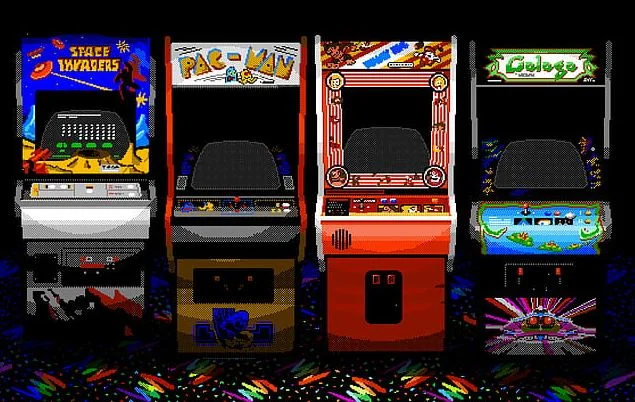Embarking on the quest for the ultimate gaming console, developers seek the pinnacle of performance. The impact of this choice on game development cannot be overstated. From embracing state-of-the-art technology to enabling seamless gameplay, meticulous evaluation is key. By dissecting console intricacies and maximizing gaming potential, developers unlock endless creative possibilities.
Key Takeaways
- Consider hardware performance factors like GPU power, CPU performance, memory bandwidth, and storage speed for optimal game development and gameplay experience.
- Game compatibility and optimization are crucial, so ensure hardware specs align with software requirements, and prioritize CPU and GPU performance along with RAM size and storage type.
- Developer support and tools play a significant role, so choose a console with robust development tools, SDK support, cross-platform compatibility, community support, and regular updates for streamlined game creation.
- Long-term investment factors such as console lifecycle, software support, future development capabilities, update history, and potential upgrades should be carefully evaluated to make sustainable development decisions.
Understanding Your Gaming Needs
Understanding Your Gaming Needs is paramount when choosing the best gaming console to enhance your overall gaming experience. To begin, assess the type of games you enjoy playing the most. If you prefer fast-paced action games, a console with high processing power and advanced graphics capabilities might be ideal. On the other hand, if you are more into multiplayer or party games, a console with excellent connectivity options and support for multiple controllers could be more suitable.
Consider also the exclusive titles available on each console. Some gaming platforms have distinct games that may align better with your preferences. Researching the game libraries of different consoles can help you determine which one offers the most appealing selection for you.
Furthermore, think about the additional features that matter to you. Are you interested in virtual reality gaming? Do you value media streaming capabilities or backward compatibility with older games? Understanding your priorities in terms of features can guide you towards a console that meets your specific needs and enhances your gaming experience to the fullest.

Comparing Console Performance
When evaluating gaming consoles, a critical aspect to consider is their performance in handling graphics-intensive games and providing a smooth gaming experience. Several factors influence a console’s performance and can significantly impact the overall gaming experience:
- Graphics Processing Unit (GPU) Power: The GPU determines a console’s ability to render high-quality graphics and support advanced visual effects.
- Central Processing Unit (CPU) Performance: A strong CPU is essential for handling complex game AI, physics simulations, and overall system responsiveness.
- Memory Bandwidth: Higher memory bandwidth allows for faster data transfer, reducing loading times and enhancing in-game performance.
- Storage Type and Speed: Faster storage drives, such as SSDs, can significantly decrease load times and improve overall system responsiveness.
- Optimization and Software Support: Consoles with well-optimized software and strong developer support can maximize performance potential and ensure a smoother gaming experience.
Considering these factors can help you make an informed decision when comparing console performance and selecting the best gaming console for your gaming needs.
Evaluating Game Compatibility
To assess the compatibility of games with different gaming consoles, a meticulous examination of hardware specifications and software requirements is imperative. Hardware specifications such as processing power, graphics capability, and storage capacity play a crucial role in determining whether a game can run smoothly on a particular console. Developers need to consider factors like CPU and GPU performance, RAM size, and storage type to ensure optimal game performance.
Furthermore, software requirements, including the operating system version and any additional software dependencies, must align with the console’s capabilities. Compatibility issues can arise if a game requires specific software features that are not supported by a particular console. Developers must thoroughly test their games on different consoles to identify and address any compatibility issues before release.
Exploring Developer-Friendly Features
Developers benefit greatly from exploring the array of developer-friendly features integrated into modern gaming consoles, enhancing their ability to create innovative and immersive gaming experiences.
- Robust Development Tools: Modern consoles offer powerful tools that streamline the development process, enabling developers to create high-quality games efficiently.
- SDK Support: Software Development Kits (SDKs) provided by console manufacturers give developers access to essential resources and APIs for optimizing game performance.
- Cross-Platform Compatibility: Consoles that support cross-platform development allow for easier porting of games across different systems, expanding the reach of the game.
- Community Support: Some consoles offer active developer communities where professionals can share knowledge, collaborate, and troubleshoot issues, fostering a supportive environment.
- Regular Updates and Patches: Consoles that receive frequent updates and patches ensure that developers can stay current with the latest features and improvements, enhancing the overall gaming experience.
Considering Long-Term Investment
Continuing our exploration of developer-friendly features, a vital aspect to consider for developers looking to optimize their gaming experience is the strategic evaluation of long-term investment opportunities in gaming consoles. When assessing long-term investment potential, developers must consider factors such as the console’s lifecycle, software support, and future development capabilities. Investing in a gaming console that offers a robust and enduring platform can ensure that developers have continued access to cutting-edge technology and a thriving user base for their games.
Furthermore, long-term investment considerations extend beyond the initial purchase cost. Developers should evaluate the console’s history of updates, backward compatibility features, and potential for future upgrades. Choosing a console with a strong track record of supporting developers through consistent updates and enhancements can provide a stable foundation for long-term game development projects.
Frequently Asked Questions
What Are Some Key Factors to Consider When Setting up a Gaming Console for Developers?
When setting up a gaming console for developers, key factors to consider include hardware specifications for optimal performance, compatibility with development tools, access to developer support resources, storage capacity for game development files, and the ability to test games across different platforms.
How Can Developers Optimize Their Gaming Experience Through Customization Options on Different Consoles?
Developers can optimize their gaming experience through console customization options. By adjusting settings such as resolution, frame rate, and audio output, developers can tailor their gaming environment to suit their preferences and enhance their overall gaming experience.
Are There Any Specific Gaming Consoles That Cater More Towards Developers Than Others?
Certain gaming consoles, like PlayStation and Xbox, offer development kits and tools that cater more towards developers. These consoles provide robust capabilities, SDKs, and support, making them preferred choices for those looking to create and optimize gaming experiences.
What Are Some Lesser-Known Features of Gaming Consoles That Developers Should Be Aware Of?
Some lesser-known features of gaming consoles that developers should be aware of include advanced debugging tools, customizable development environments, and exclusive software development kits. These features can enhance productivity and streamline the game development process significantly.
How Do Developers Ensure They Are Getting the Most Out of Their Chosen Gaming Console in Terms of Performance and Functionality?
Developers can optimize performance and functionality of their chosen gaming console by staying updated on system updates, utilizing hardware capabilities efficiently, optimizing code for specific platforms, and leveraging tools provided by console manufacturers for enhanced development and testing processes.
Conclusion
In conclusion, selecting the best gaming console for developers involves a thorough evaluation of performance, compatibility, developer-friendly features, and long-term investment potential. By carefully considering these factors, developers can optimize their gaming experiences and enhance the quality and success of their game development projects. Making an informed decision regarding the choice of gaming console is crucial in unlocking creativity, innovation, and ultimately achieving gaming excellence in the dynamic landscape of game development.
You may also like to read:
Elevate Your Game: How Sustainable Programming Transforms Soccer Apparel for Business Success




